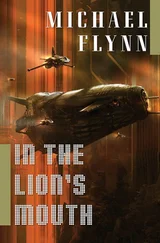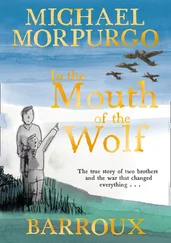The Princess approached and kissed the Prince’s proffered cheek.
‘Well,’ he asked, sitting back down on his armchair, the leather cushions huffing and crackling. ‘What news on the Rialto?’
‘They’re scared, Father. They think Sicily is next and that the Germans are about to arrive in force. Rumours. I think Mauro might be making plans to escape.’
‘Doesn’t that rather suggest he won’t marry you?’
Luisa laughed quickly, dismissively. ‘I wouldn’t have married him.’ Mauro appeared to her mind’s eye the way he always did, his pretty features like an illustration in a children’s book, a simple, impertinent face.
‘That’s a relief. A few years ago I suppose you might have got away with it, when things were different for them. Now I would certainly forbid it.’
‘Yes, Father. But there’s no need. I’ve already forbidden it.’
‘Good.’
‘I’m going to change. I want to ride before dinner. Any news here?’
‘I just had Angilù in here.’
‘Yes, I saw him.’
‘There’s a lot of news coming back from cousins in America. Certain people who left a long time ago are apparently helping the Americans. Which suggests that the news in Palermo may be correct. I don’t know. I don’t know what’s going to happen.’
‘Nobody does.’ The Princess thought her father looked very old in his chair, the way his long, narrow thighs jutted out and converged weakly at the knees, his bony hands on the armrests. He had worked very hard for the estate. Prince Adriano was a rare eccentric: a Sicilian landowner who liked the land.
Walking home, Angilù caught sight of the witch of Montebianco in the distance. Perhaps she’d been visiting someone in the house, the servant Graziana maybe. Short, dark, she moved with a rapid skimming walk, a small bag hanging from her right hand. Angilù wondered what she knew. For himself, he preferred the church now and again. He should go soon to get a blessing. He pictured the holy sparkle of it descending on him, protecting him.
He walked up through the whispering avenue of olive trees and into his home, into the blue shadows of his whitewashed hallway with its smooth, cool smell of plaster dust and paint. For two years, Albanese’s widow had remained in this place. After two years, she had moved back in with her mother in Sant’Attilio and later, when she’d married again, into Silvio’s house. The Prince had invited Angilù and Rosaria, then pregnant with their first daughter, to move in. The house frightened both of them at first. It was so large and quiet and still. And Albanese had lived there. His presence remained. The families in Sant’Attilio who were friends of the Albaneses, those of them who remained, watched Angilù as he passed in the street. Angilù had the house blessed. Holy water flashed into every corner. And then the baby was born, a new blossoming of loud life, and Angilù forgot; the place became their house.
He could hear Rosaria in the kitchen, the melody of her talk to Mariuzza, their youngest daughter. Walking in, he found Mariuzza sitting on the counter, kicking her soft legs. Rosaria was pouring olive oil into the bottom of a smoking pot. Beside her were heaps of sliced vegetables. Angilù put his hand on the back of her neck, a strong, thick neck, a mother’s neck. Always that distance he crossed in himself to reach out and touch her, still at heart a shepherd and far from everything. He kissed the ticklish damp hair on her nape as she picked up a handful of silvery onions and dropped them into the pan. ‘Hello, little bird,’ he said through the sudden noise of frying.
‘Yes, yes. You need to move.’
Angilù caught hold of one of Mariuzza’s swinging feet. He held it, straightening the girl’s leg, and bent to kiss the dimpled knee.
Graziana had unpacked Luisa’s things by the time she went upstairs. She put on a riding dress and stepped out to fetch a field guard from their office to accompany her. The first flames of evening were in the sky. Luisa chose to ride Ezio, sharp-boned and volatile, a horse that tended to fidget and sidestep and yank at the reins. The guard subdued him in the stables then bent down to offer his hands to Luisa. She stepped up into the saddle. The field guards were always so strong — the man’s knitted fingers felt like a stone step. In the courtyard, Ezio tried whirling on the spot. Luisa sat on the beast, imposing herself. She spoke at him and patted his neck. Ezio calmed, stalled finally under her, breathing and thinking. Luisa kicked. She rode out. The guard followed after.
Ezio didn’t like going downhill. He fended away at the slope with his forelegs, trying to tread back upright, but Luisa leaned in, persuaded him down. His hooves scraped. Small stones slithered after. And that was the last of Ezio’s resistance for the day. They rode together, a strong headwind cutting away at Luisa, cleansing and purifying. Ezio’s long eyelashes flickered against the onrushing air. Their wills fused — that was Luisa’s sensation. Ezio understood what Luisa intended and stretched his legs, gathering the ground behind them. Luisa was freed in the loosened movement. They walked for a while, Luisa resting her gaze in the distances, creases of shadows in the hills, clouds turning scarlet in the sky. At this pace she saw the birds hopping and people labouring among straight rows of vines. She turned in the saddle to see the guard trotting after. When she stopped, he did, keeping the distance she’d demanded. He sat waiting, his hands on the pommel, his thick legs stuck out. Luisa turned Ezio with a swipe of the reins and kicked. His head and shaking mane crested in front of her. They galloped down past the guard and back towards the house.
Connecting the swirling lines of the maps with the reality of the old country was difficult. Maps and memories were so different. Standing over them, the colonel patiently waiting, Cirò thoughtfully rubbed his nose between his thumb and his forefinger. His part of the island had many concentric rings of contour lines that looked like knots in wood. Those were the hills he remembered. He followed one road with his finger. If Portella Corvi was there and Sant’Attilio was there … then he knew where he was. That hill, he could see its surly shape again in his mind, the near side always shadowed. Now he could put himself there and see the whole place unfold around him. He could say to the colonel that this was all Prince Adriano’s land, that this belonged to the Santangelis, that there were wells here, here and here.
His route into that room was not one that Cirò would have chosen. It had been demeaning. Certain Italian and Sicilian men with influential American friends had been approached in a civilised manner, taken out to dinner, spoken to quietly in clubs and brothels. Or an unusually well-dressed stranger had appeared at their prison cells and led them out. Cirò, for all his American success, still belonged in a different category. Working his trade at the docks, he was no boss. He was collected in a mass arrest at a waterfront café. At least it had been a mass arrest. An individual arrest would really have worried him. Not that there was any evidence of the things he’d done. He hadn’t used a gun. Docks were dangerous places. A cargo hook swings. A walkway is slippery. And that had been some time ago when he was establishing himself. They arrested everyone in the café. The officers sifted through them letting Poles and Norwegians and others go. They held onto the Sicilians.
The dumb cops had clearly been told to lay it on thick. A fat little police captain who for a long time had received tributes of money from some of the men in the room and had been taken to girls by others, barked out that they were cleaning up. Everybody would be in for a long stretch. Unless, that is, they were interested in cooperating. Given the rumours that were circulating (and more than rumours, good, hard facts passed along the line), no one was surprised when blue gave way to green and into this little theatrical production walked an army officer. He told them that they were all off the hook if they would step up and serve their country. The army wanted their help.
Читать дальше












